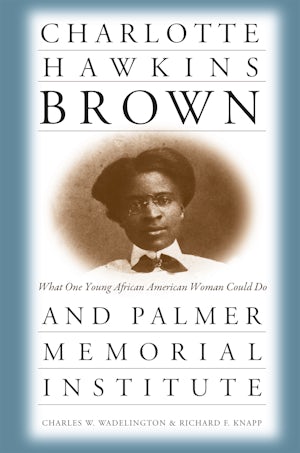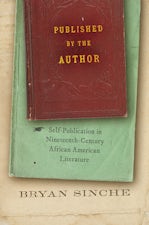Charlotte Hawkins Brown and Palmer Memorial Institute
What One Young African American Woman Could Do
By Charles W. Wadelington, Richard F. Knapp

320 pp., 6.125 x 9.25, 65 illus., appends., notes, bibl., index
-
Paperback ISBN: 978-0-8078-4794-7
Published: November 1999
Buy this Book
Awards & distinctions
2001 Certificate of Commendation, American Association for State and Local History
She stayed for over half a century. When the failing school was closed at the end of her first year, Brown remained to carry on. With virtually no resources save her own energy and determination, she founded Palmer Memorial Institute, which she would lead for fifty years. As other black private schools across the state vanished, Brown built Palmer up to become one of the premier academies for African American children in the nation.
A remarkable example of achievement in the face of segregation and discrimination, the story of Charlotte Hawkins Brown and her school continues to provide a model of educational success born of dedication and hard work.
About the Authors
Charles W. Wadelington is associated with the Historic Sites Section of the North Carolina Department of Cultural Resourcesand is minority interpretations specialist.
For more information about Charles W. Wadelington, visit
the
Author
Page.
Richard F. Knapp is associated with the Historic Sites Section of the North Carolina Department of Cultural Resources. and is curator of research.
For more information about Richard F. Knapp, visit
the
Author
Page.
Reviews
"[The authors] have captured the essence of Brown in this inspiring and beautifully written work. . . . Those interested in black education, women's history, and North Carolina history will find this monograph rich and invaluable."--Journal of Southern History
"In offering this well-researched study, [the authors are ] filling an enormous gap. They reveal in powerful detail the drive, skill, commitment, and religious faith that enabled Brown to create a school in North Carolina and to run it for almost fifty years; at the same time they provide insights into Brown's human frailties and inner tensions. . . . A thorough institutional history of Palmer that is unlikely to be bettered."--Journal of American History
"A credible narrative of a remarkable woman who created a viable African American institution despite the most daunting obstacles. This profusely illustrated and carefully researched book will be important not only for North Carolina libraries but also institutions supporting research on African American history, education, and institution building."--Choice
"An inspiring biography of a dedicated educator who surmounted financial obstacles and prejudice to make a dream come true."--Richmond Voice
"Unquestionably this book is a major contribution to the literature on a leading Tar Heel educator of the 20th century and the school she founded."--Our State
"Unquestionably, this thoroughly documented book is a major contribution to the literature on a leading Tarheel educator of this century and the school she founded."--Winston-Salem Journal



